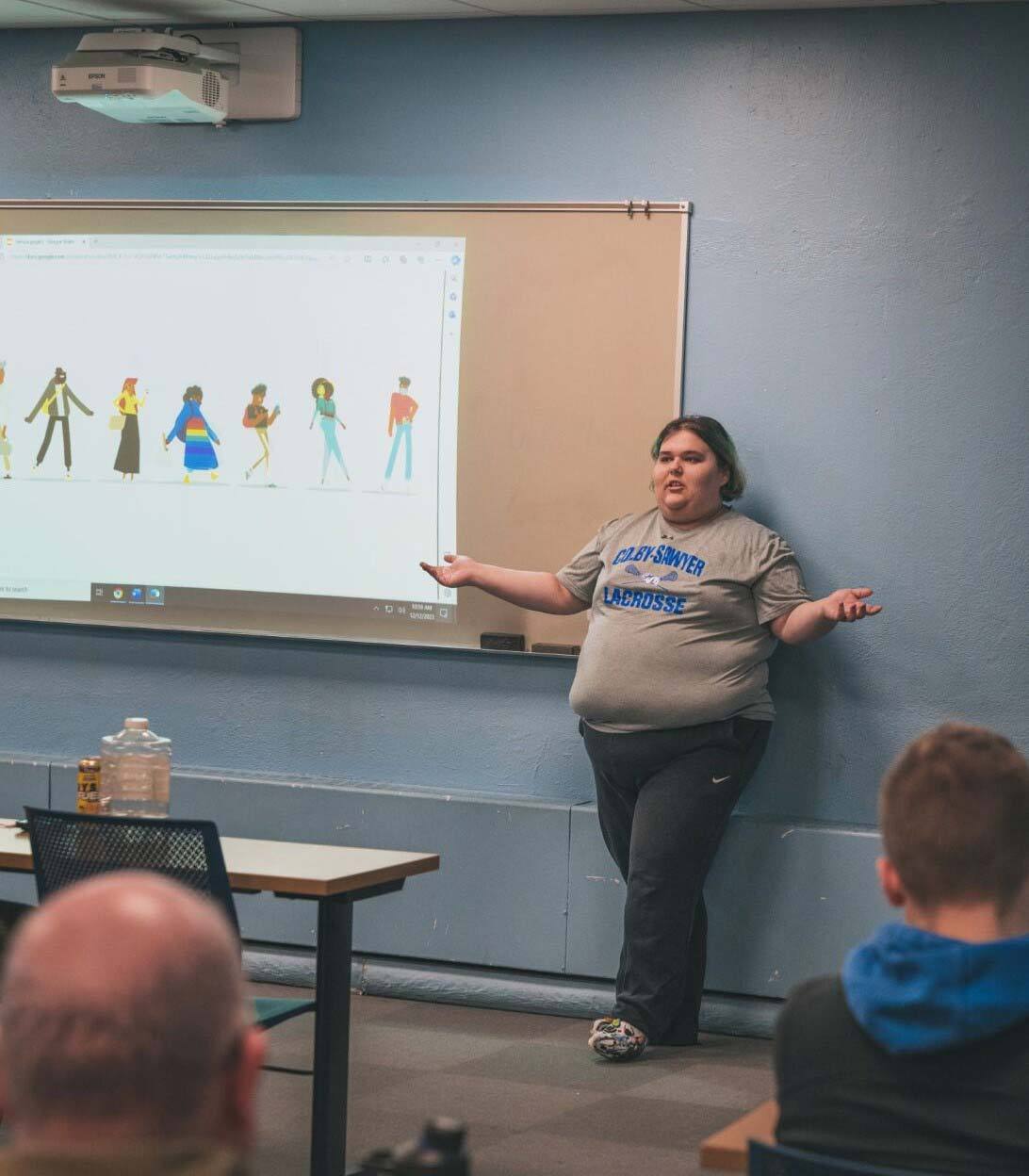Service in Leadership Course Gives Colby-Sawyer Students Opportunity to Shine
Every teacher hopes that their work will make a positive impact in the world, but most are not so lucky as to witness their impact firsthand. Of course, if you were to ask Dave Zamansky, Colby-Sawyer’s director of residential education, he would tell you his service-learning course, Service in Leadership, wasn’t really about him, anyway—it was about the students.
“I wanted our students to be seen as role models at events across campus and doing their projects out in the community,” Zamansky said.
From this idea, and from Zamansky’s many years of experience in the field of leadership development, he was able to create a curriculum for a new service-learning course that could accomplish exactly that. Accordingly, over the fall semester, 31 Colby-Sawyer students had the opportunity to plan and execute a project that would, in their own views, make the world a better place.
“The class was set up to ask them two main questions: what do they care about, and what is the future they want to create?” Zamansky explained. “Those two answers would go into creating an overall big, bold future picture of where they want to see the world, called their ‘vision.’ Each student’s project would then be designed with the intention of advancing that vision.”
For Phoebe Carter, a nursing student from Farmington, Connecticut, the goal was to “create a world where people who are stressed, anxious or depressed can find a sense of peace and well-being through non-traditional methods of stress relief.” For psychology student Simone Long of Wales, Maine, it was to “create a world of acceptance through a place of understanding individual differences.”
Given their loftiness, these ambitious plans then needed to be broken down into concrete tasks that could be completed within a semester. For Carter, this meant traveling to Newport, New Hampshire, to work with Full Circle Farm, exploring how they use horses to provide therapeutic stress relief to vulnerable populations, like disabled people and veterans. For Long, it meant organizing an international fair where students could learn about other cultures.
“I love planning events, so planning the fair was the high point for me,” said Long, who is also an RA at the college. “My favorite moment was when the participants all listened to Eurovision [a yearly European music contest that is broadcast across the continent] together. That was so much fun.”
Of course, not every project came together so seamlessly, and the students needed to work together as a group to support and encourage each other’s work.
“Some of the challenges that the students faced were that the service project they wanted to complete had enough roadblocks that they could not be accomplished …. They had to pivot and think of other things to do that centered on their vision,” Zamansky said. “Some students never thought about vision and needed others in the class to challenge them to think more about what they care about or love to do. This was a class of pure self-exploration and it took everyone to help in that.”
But, in the end, the obstacles the group encountered became some of the most useful aspects of the experience for them.
“I learned a lot of interpersonal skills,” Long said, “and more ways that, when I encounter a problem, I can solve it.”
For the final classroom sessions, students presented their work to each other, and everyone had the opportunity to see what their peers had accomplished. They described dozens of different projects, from a collaboration with Habitat for Humanity to a food drive for the Kearsarge Food Pantry—an endeavor that was so effective, it garnered a letter of praise about psychology major Sarah Fuller, the project organizer, to Colby-Sawyer College President Susan D. Stuebner.
As for Zamansky, he considered the course to have been a resounding success.
“The class was the highlight of my semester,” he said. “It was a bright spot in my week every time we met. My favorite part was the students and the way they reacted and got involved in the curriculum. I loved the relationships created and the connections made. This was truly a fun semester.”
Zamansky intends to offer the course again next fall with an entire catalog of examples to share with a new cohort of service-learning students.
